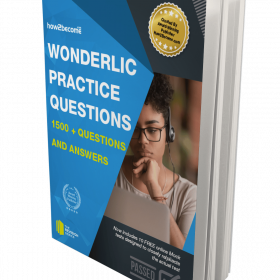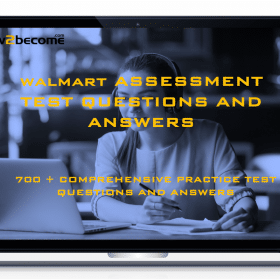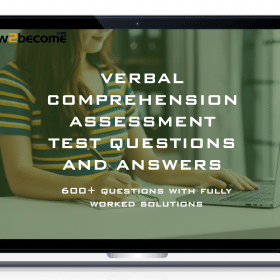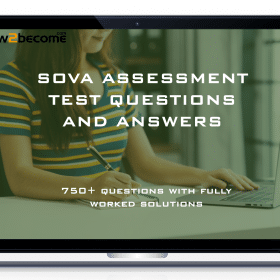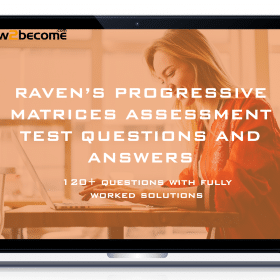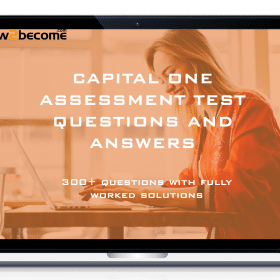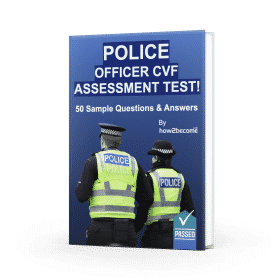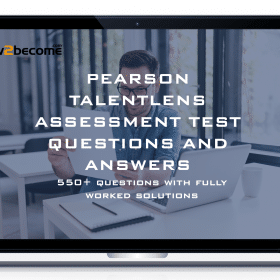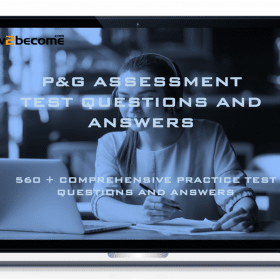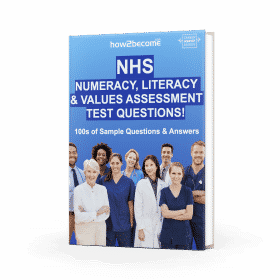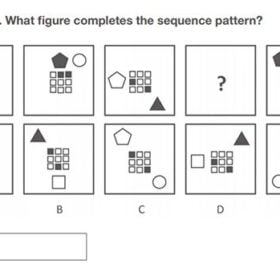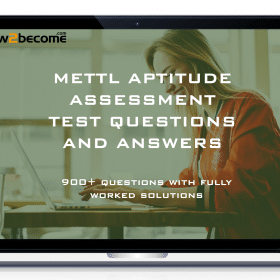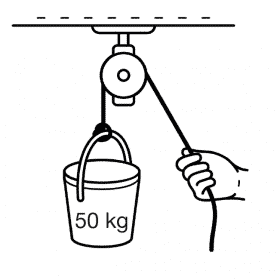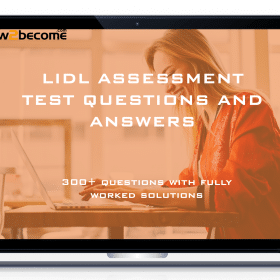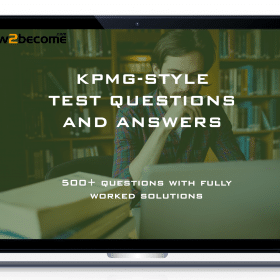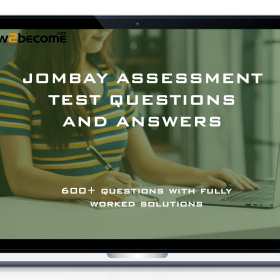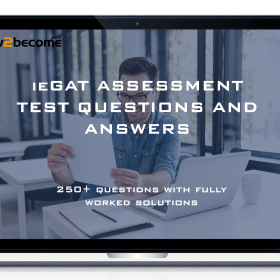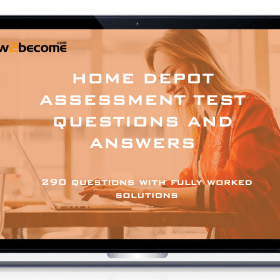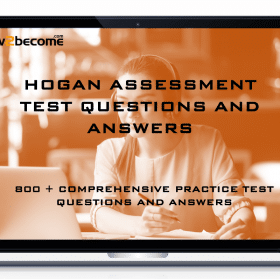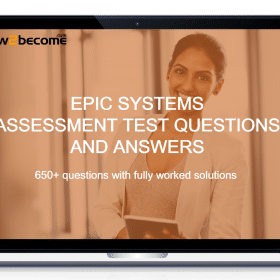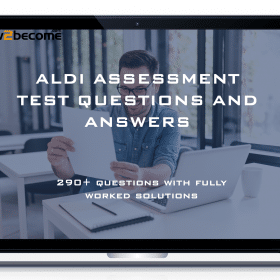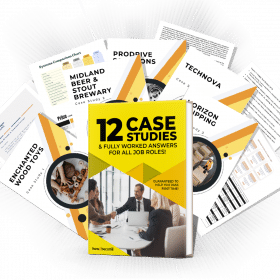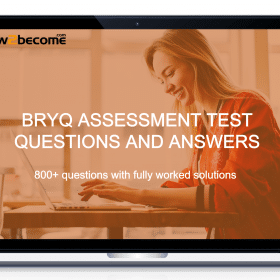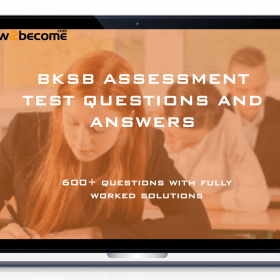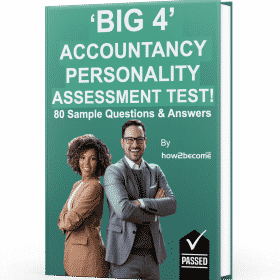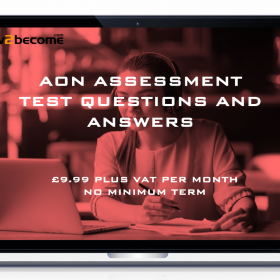WHAT ARE APTITUDE TESTS?
Aptitude tests are used by employers during application processes in order to find the best candidate for the role. They cover a range of areas, from numerical and logical reasoning all the way up to lateral thinking and vocabulary, testing all kinds of skills that candidates must possess in order to perform well in the position they’ve applied for. The exact aptitude tests that you’ll have to take will depend on the position that you’re applying for and the company that you’re applying to work at.
Aptitude tests can come in many forms. Some will be psychometric tests, such as numerical and verbal reasoning, whilst others are more specialised, such as the UKCAT test. Here, we’re going to be looking at the more general forms of aptitude test, which are commonly referred to as psychometric tests.
As previously mentioned, aptitude tests take place during the selection process. See below for a general outline of an application process to get an idea of when you’ll have to take aptitude tests. Stages which involve aptitude tests have been highlighted in bold:
- 1. Initial application (including CV upload and application form);
- 2. Aptitude tests;
- 3. Telephone/online video interview;
- 4. Assessment centre (can include more psychometric tests);
- 5. Face-to-face interview.
GRADUATE APTITUDE TESTS
While it’s possible to take aptitude test papers in a physical format (i.e. in an exam room during the assessment centre), you’re more likely to come across them in a digital format. This is because almost all employers who use aptitude tests will conduct them before any face-to-face meetings with candidates. This means that they can ‘weed out’ unsuitable candidates as early possible. The benefit of this for employers is that they can keep the number of interviews and assessment centre candidates to a minimum, whilst also making sure that the most suitable applicants make it to the later stages.
The benefit of taking aptitude tests early on in the application process is that, if you don’t pass, you aren’t wasting your time taking the application any further. Also, if you do pass the aptitude test stage, then that means you meet the standard set by the employer. As long as you don’t need to take any psychometric tests at the assessment centre, you won’t have to worry about the aptitude tests past that initial stage. This means you can move onto preparation for the interview and assessment stages.
WHO TAKES APTITUDE TESTS?
Aptitude tests could appear in any application, but are generally reserved for graduate employers looking to fill positions on graduate schemes. This means that if you are applying for a position at a company that almost exclusively employs university graduates, you will be expected to take a few aptitude tests.
Here are some graduate employers who make use of aptitude tests:
TYPES OF APTITUDE TEST
As previously mentioned, aptitude tests come in two main forms. They are:
- Psychometric tests (e.g. numerical reasoning, verbal reasoning, inductive reasoning);
- Career-specific tests (e.g. UK Clinical Aptitude Tests, SHL numerical tests, RAF aptitude test).
We’re going to focus on psychometric tests, and what you can do to prepare for them.
Psychometric tests take many forms and assess all kinds of different skills. In addition, the psychometric tests that you will have to take as part of the application process will highly depend on the job that you’re applying for and the company offering the role. For example, one company might place greater emphasis on inductive reasoning, whilst another might focus on lateral thinking. Try and find out what you’ll be tested on before starting the application process, so that you have time to do some aptitude test preparation. Here are the different types of aptitude test that you might have to sit during an application for a graduate scheme:
- Numerical reasoning;
- Non-verbal reasoning;
- Inductive reasoning;
- Verbal reasoning;
- Situational judgement;
- Vocabulary;
- Personality.
The numerical reasoning test is one of the most common during application processes, since it tests skills that are needed for a wide range of graduate jobs. This test generally focuses on two areas. The first is general numerical reasoning, where you will be asked questions which require use of mathematical functions such as multiplication, division, addition and subtraction.
The second type of question involves data interpretation and your ability to answer questions based on charts, graphs, tables, and other methods of representing data. The aim of this test is to get you thinking logically, working through mathematical processes and examining data to come to the correct answer. The test takes a multiple-choice format for all of its questions.
Take a look at the following aptitude test sample question for the numerical reasoning test:
Question
Bike Sales
| Country | Jan | Feb | Mar | April | May | June | Total |
| UK | 21 | 28 | 15 | 35 | 31 | 20 | 150 |
| Germany | 45 | 48 | 52 | 36 | 41 | 40 | 262 |
| France | 32 | 36 | 33 | 28 | 20 | 31 | 180 |
| Brazil | 42 | 41 | 37 | 32 | 35 | 28 | 215 |
| Spain | 22 | 26 | 17 | 30 | 24 | 22 | 141 |
| Italy | 33 | 35 | 38 | 28 | 29 | 38 | 201 |
| Total | 195 | 214 | 192 | 189 | 180 | 179 | 1149 |
What percentage of the overall total was sold in April?
| A | B | C | D | E |
| 17.8% | 17.2% | 18.9% | 16.4% | 21.6% |
Aptitude questions in the non-verbal reasoning test are multiple-choice, and focus on your ability to recognise patterns. Questions in this test take many forms, but are all focused on shapes and the patterns within them. You might be asked to spot the odd one out from a collection of shapes and images, or choose the correct shape to complete a sequence. This test can be tricky for candidates who are unfamiliar with the types of question being asked, so it pays to do some aptitude test preparation for the non-verbal reasoning test.
Here’s an example of the kind of question that you might come across in the non-verbal reasoning test:
Question
What figure completes the sequence pattern?
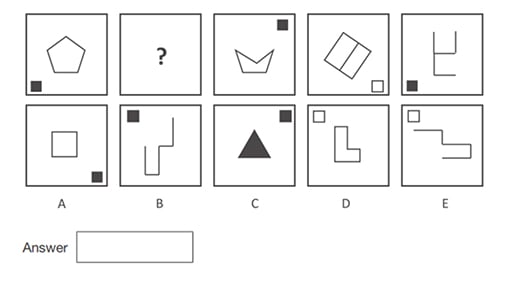
The inductive reasoning test is similar to the non-verbal test in that it assesses your ability to recognise patterns. However, unlike the non-verbal reasoning test, the inductive reasoning test doesn’t involve shapes and images, but rather it asks you to identify patterns using letters from the alphabet. These might seem simple at first glance, but they require keen, logical thinking to crack what the pattern is. Once you’re able to do that, you’re ready for any inductive reasoning test.
Questions are in a multiple-choice format and generally require that you complete sequences.
Take a look at the following sample question from an inductive reasoning test:
Question
| E | A | S | C | ? |
What is the next letter in the sequence?
| 1 | 2 | 3 | 4 | 5 |
| I | W | T | B | K |
The verbal reasoning test assesses your ability to read a body of information, identify the key details, and then evaluate claims made about the passage. For each statement, you will have to say whether it is true, false, or that you ‘cannot say’/’cannot tell’ based on the information given in the text. The key here is to read the passage carefully, taking note of the key information and being ready to apply it when answering the questions.
Here’s a sample question from a verbal reasoning test:
Read the following text before answering the questions as either TRUE, FALSE or CANNOT SAY from the information given.
The Difference Between Affect and Effect
Not everyone is skilled with grammar and even those who are struggle with some of the most commonly mistaken words in the English language. Two words that cause a lot of confusion for people are affect and effect. Many people have a lot of trouble with the usage and the meanings of these words, as they are very easy to mix up. The majority of people aren’t really sure of when to use one or the other, which is why they simply end up guessing.
The reason why these two words are so confusing is that while each is a different part of speech, they sometimes function as other parts of speech. In most cases, affect is a verb and effect is a noun. You can affect something, which will produce an effect on that thing. Things are always affected, never effected. This is the general rule that you should always remember. Only in rare cases will affect or effect serve as different parts of speech. Remember that an effect is always something that is produced and an affect is what you do to something.
Just to be thoroughly confusing, there are very rare situations when effect will be used as a verb and affect will be used as a noun. For the most part, you will never have to use them in these cases. Use the general rule from above (affect is a verb and effect is a noun), but try to remember the following odd instances. As a verb, effect means to accomplish, produce or execute something. As a noun, affect is used by psychologists to refer to desires and emotions as factors in how someone acts or thinks. Obviously, both of these instances do not occur often, but you will see them sometimes in things you may be reading, such as an academic journal. Always keep in your mind that under most circumstances, use affect as a verb and effect as a noun.
Question
In most cases, effect is a verb and affect is a noun.
- TRUE
- FALSE
- CANNOT SAY
Situational Judgement Test
Situational judgement tests are slightly less common than the assessments listed above, but they still show up in enough application processes to make learning about them worthwhile. Situational judgement tests assess your ability to make quick decisions about various of scenarios. Sometimes, these tests will judge your knowledge of the company’s specific ethos or protocols, whilst on other occasions the questions might be more generic. These tests tend to be multiple-choice, and will focus on how well you can choose the most suitable solutions and responses to situations you might face in the workplace.
Bear in mind that some companies might refer to your answers in this test during your interview. If you get to that stage, think about the answers you gave during the situational judgement test and more importantly why you gave that specific answer.
Take a look at the following example question for the situational judgement test:
Question
You are a train conductor working on your local line. At 10 past 10 in the morning, you are performing your hourly ticket inspection. You come across a man on the train who has not purchased a ticket. He claims that the reason for this is because he had to board the train quickly. It’s an emergency as his mother has taken a fall and is in hospital. He has the money to pay the fare there and then. His station is two stops away. What do you do?
A) Consult with the other people in the carriage as to what to do.
B) Allow him to pay the full ticket fare to his intended stop.
C) Perform a citizen’s arrest. This man is a criminal.
D) Kick him off at the next stop. The rules state that if he hasn’t paid, then he must leave the train.
| Very helpful | |
| Helpful | |
| Neither helpful nor unhelpful | |
| Unhelpful | |
| Very unhelpful |
The vocabulary test is multiple-choice, and tests your knowledge of words and what they mean. Questions can come in the following three forms:
- Definition – you will be given a word and will have to give the definition of it, choosing from a list of phrases;
- Synonym – you will be provided with a word, and will have to choose the word which best matches it.
This test can be difficult as it can use words that are rarely spoken or written in everyday life. However, it’s quite straight-forward to revise for since you just need to take time to learn what words mean, and what their synonyms are.
Take a look at this sample question for the vocabulary test:
Question
Choose the correct synonym for the following word:
Serene
| A | B | C | D | E |
| Slow | Tranquil | Dark | Loud | Feozen |
What are Critical Thinking Tests?
Critical Thinking Tests are often used by graduate employers to assess a candidate’s ability to think critically. This includes the ability to:
- Use deductive reasoning to reach a sound conclusion;
- Interpret data or information with regards to a statement or question;
- Use inductive reasoning to reach plausible conclusions;
- Spotting assumptions made by text and proving awareness of assumptions;
- Evaluate arguments made, examining their logical validity, and proneness to logical fallacies.
These tests are almost always multiple-choice, requiring candidates to choose from a range of answer options.
Here’s an example of an ‘assumptions’ question from the critical thinking test:
Good education is the lifeblood of our country. We need to ensure that class sizes aren’t too large by building new schools.
Young people are the lifeblood of our country.
A. Assumption Made.
B. Assumption Not Made.
Answer: A. – Assumption Made. The passage states that good education is the ‘lifeblood’ of our country, stating that it is vital. Since education mostly affects young people, it is fair to say that the passage assumes that young people are a vital part of our country.
This test measures your understanding of mechanical concepts such as forces and machinery. Question types include gravity, effort, and the best tool for completing a certain task.
The Mechanical Comprehension Test is a mixture of question types, ranging from multiple-choice to open-ended answer.
Here’s an example of a Mechanical Comprehension Test question.
Which of the following tools would be best for smashing concrete?
A. Crowbar
B. Claw Hammer
C. Screwdriver
D. Sledgehammer
E. Power Drill
Answer: D. Sledgehammer
Explanation: Sledgehammers tend to have a long handle, which means that more force can be brought down with each swing, with less effort on the user’s end. In addition, the flat, wide face of the hammer means that the force is spread on an even enough area to smash the concrete.
Personality tests are fairly common when it comes to applications for graduate schemes. This is because employers want to evaluate the mindset of candidates, as well as figure out how well they’ll work as part of a team. You can’t really ‘pass’ or ‘fail’ these tests in the conventional sense – some companies will be looking out for specific traits, whilst others might prefer other behaviour. Just be sure to answer the question as honestly as possible.
In this test, you’ll need to mark yourself from 1 to 5 for each statement. 5 means that you agree strongly with the statement, whilst 1 means that you disagree strongly.
Question
I like to feel part of a group.
| 1 | 2 | 3 | 4 | 5 |
I am always with people.
| 1 | 2 | 3 | 4 | 5 |
I make friends easily.
| 1 | 2 | 3 | 4 | 5 |
APTITUDE TEST PREPARATION – TIPS
Now that we’ve taken a look at the kinds of aptitude tests you might have to sit, we’re going to go through some tips to help you pass any aptitude test.
The time constraints for aptitude tests and psychometric tests can be incredibly limiting, with some only giving you ten minutes to answer a lot of questions. It can be tempting to blast through every question as quickly as possible, but this is not advised. Make sure to spend time reading the instructions for each test, as well as focus on what each question is asking of you.
This follows from the last point, but it’s important to make sure your answers are as accurate as possible when completing any online psychometric test. Unlike some tests, where there might be lenience for slightly inaccurate answers, you can only be right or wrong in multiple-choice tests. Make sure you give every question attention and consider each answer carefully, and don’t fall back onto guesswork!
The only way to get better at aptitude tests is to practise. Sit down with some sample aptitude test questions to get yourself familiar with the style of question. Then, find some sample aptitude test papers and work your way through them, under timed conditions.
GRADUATE APTITUDE TESTS – CONTENTS
Graduate aptitude tests come in many forms, and they can be incredibly challenging. However, with some aptitude test preparation, you can be ready to face any psychometric test during your graduate scheme application process. How2Become now offer the Graduate Aptitude Test Bundle, with practice materials to help you pass psychometric tests.
This bundle will provide psychometric test sample questions, as well as aptitude test questions to find out where your strengths lie and where you need to improve. Written by experts, these aptitude questions are designed to simulate the real thing as closely as possible, allowing for quality practice before beginning your application. The bundle contains online practice aptitude test papers for the following psychometric tests:
This psychometric practice test offers hundreds of questions so that you can familiarise yourself with the material and start improving your skills.
This downloadable eBook gives you plenty of non-verbal reasoning questions and answers to ensure that you’re prepared for the psychometric test.
With this downloadable guide, you’ll gain insight on what questions can be asked, and have an opportunity to answer them for yourself. This will let you tackle the tricky challenge of deciphering patterns in the inductive reasoning test.
With hundreds of questions, this online psychometric test will help you prepare for the verbal reasoning test, giving you the opportunity to practise comprehension and identifying key information.
Although they’re rarer than the other assessments, situational judgement tests are worth preparing for since they can be so difficult. These online tests offer plenty of questions to help you prepare for the graduate application process, and help you get onto your dream graduate scheme.
With this downloadable eBook, you’ll have the chance to get to grips with the most common questions asked in personality tests, and make sure that you’re ready to answer them during the graduate scheme application process.
FURTHER MATERIALS THAT YOU MIGHT BE INTERESTED IN
Many people find the in tray exercise a daunting challenge, and without adequate preparation it can be a struggle to complete accurately and in time. Fortunately, How2Become now offer an online in tray test to help you familiarise yourself with the structure of in tray exercises, and find out where you need to improve.

✓ 30-Day Money-back Guarantee
Did you know? All orders with How2Become are protected by our 30-day money-back guarantee. What ever the reason…or no reason at all…you can have your money back if this resource isn’t right for you (see our terms for full details).
ORDER NOW
[col span="3"][/col][col span="6" span__md="12"] [ux_price_table title="" price="£27.00" featured="true" color="light" depth="2" depth_hover="4"]

Online Graduate Aptitude Tests Course [14 DAY FREE TRIAL] - Thereafter £27+vat per month
Add to cart More info [/ux_price_table] [/col] [col span="3"][/col]


